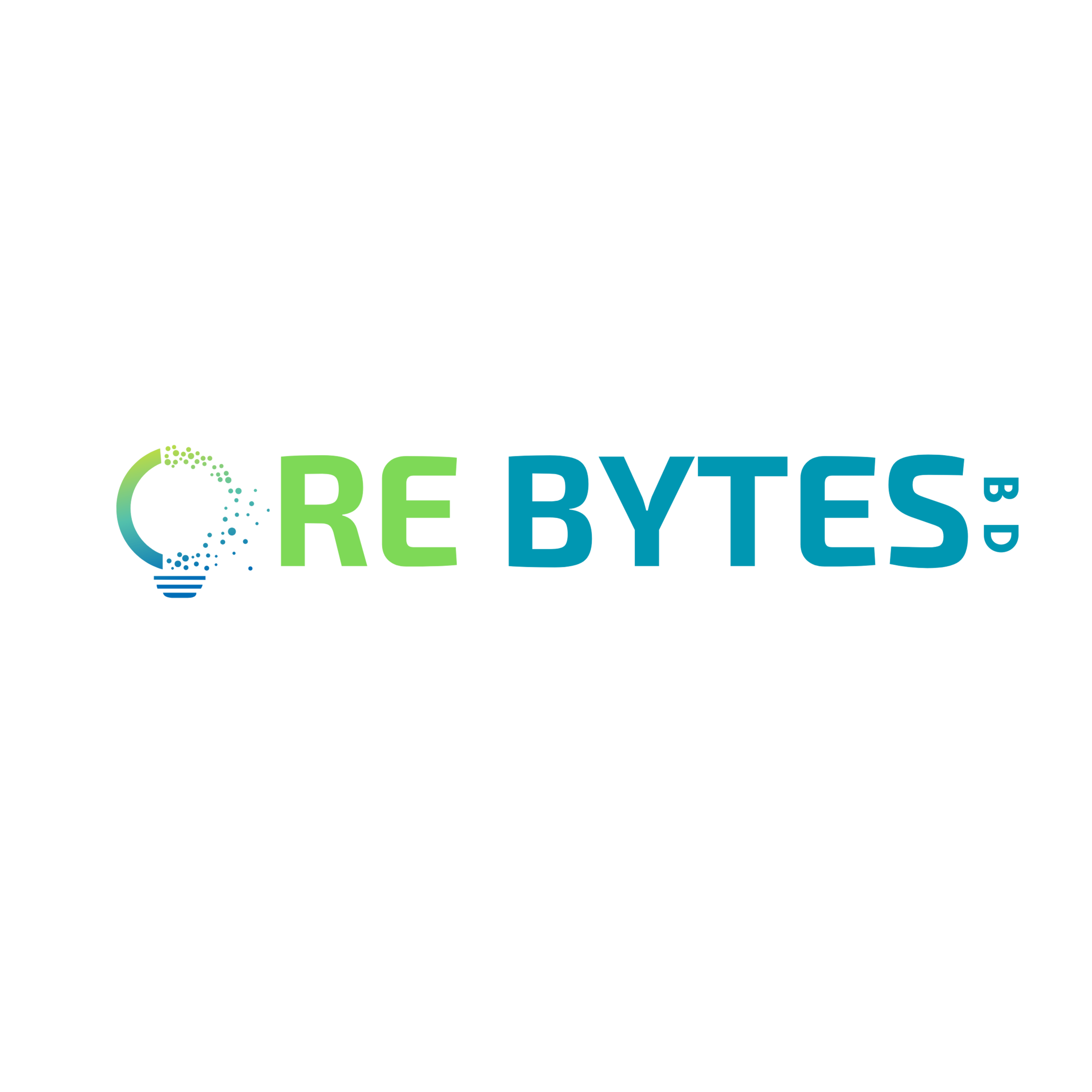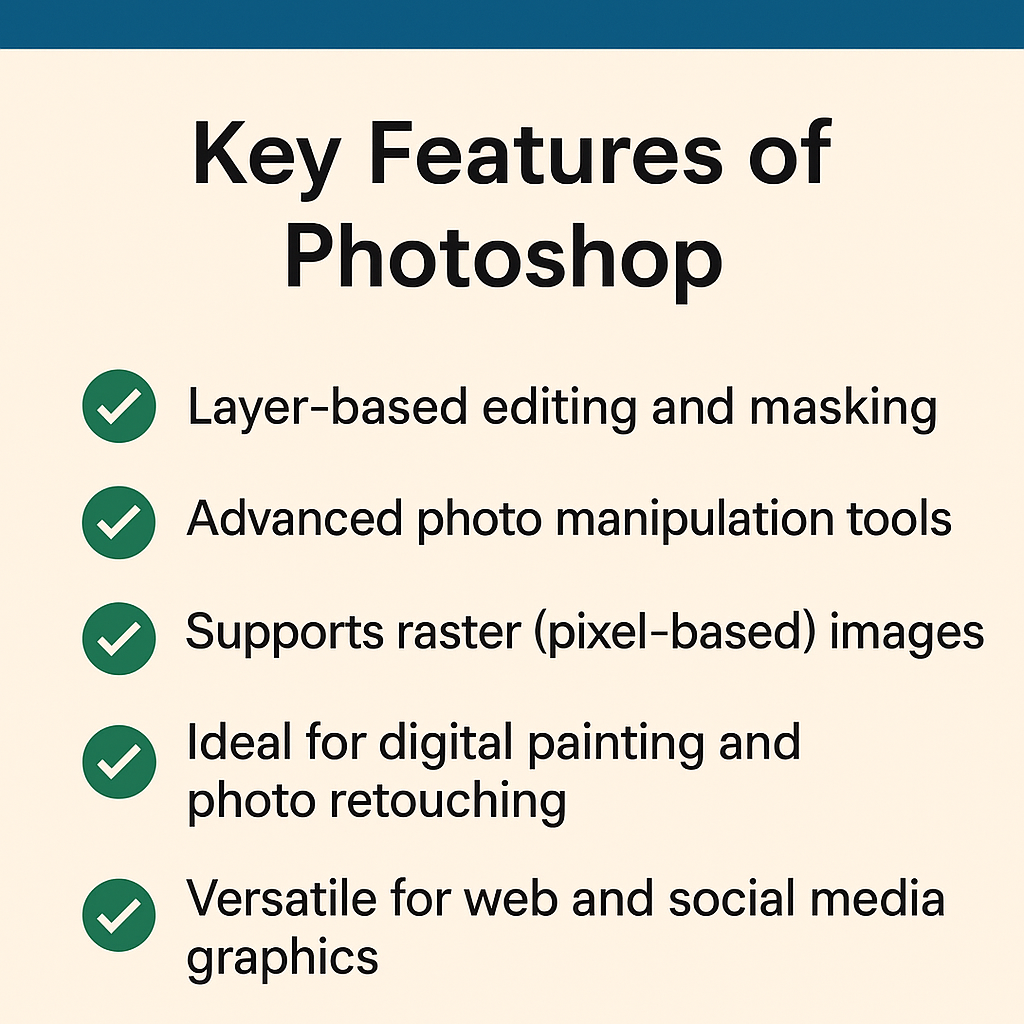In the fast-paced digital landscape, businesses must master both marketing and SEO to achieve sustainable growth. While they often overlap, understanding their differences and how to integrate them can significantly impact your bottom line.
What is Marketing?
Marketing is the broader strategy of promoting and selling products or services. It encompasses branding, customer engagement, advertising, public relations, and more. The primary goal of marketing is to build awareness and generate demand through various channels.
Key Components of Marketing:
- Branding and Positioning
- Content Creation and Distribution
- Social Media Engagement
- Paid Advertising Campaigns
- Customer Relationship Management
What is SEO?
Search Engine Optimization (SEO) is a subset of digital marketing focused on increasing a website’s visibility on search engines like Google. The primary goal of SEO is to drive organic traffic by improving search rankings.
- Keyword Research and Optimization
- On-Page and Off-Page Strategies
- Technical SEO (Site Speed, Mobile Optimization)
- Content Optimization
- Link Building
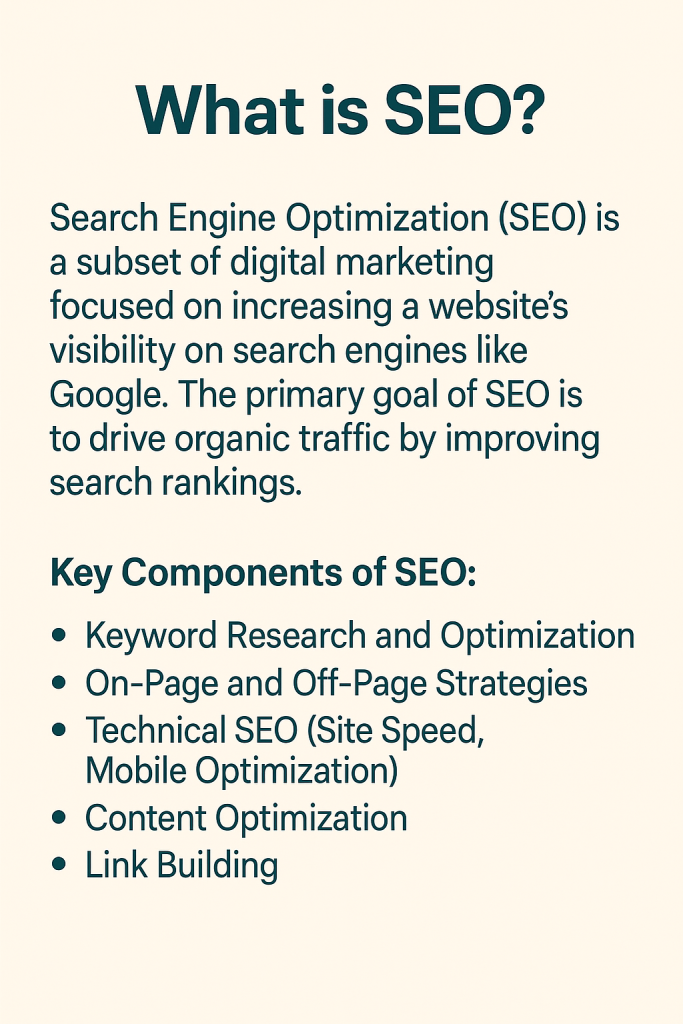
Marketing vs. SEO: Key Differences
| Aspect | Marketing | SEO |
|---|---|---|
| Focus | Brand awareness and customer engagement | Search visibility and organic traffic |
| Strategy Scope | Broad (includes SEO, PPC, branding, etc.) | Narrow (focused on search engine ranking) |
| Timeframe | Can show immediate results (e.g., ads) | Takes time to build and see results |
| Cost | Varies; can include paid campaigns | Primarily time and effort investment |
| Metrics | Engagement, reach, conversion rates | Keyword ranking, organic traffic |
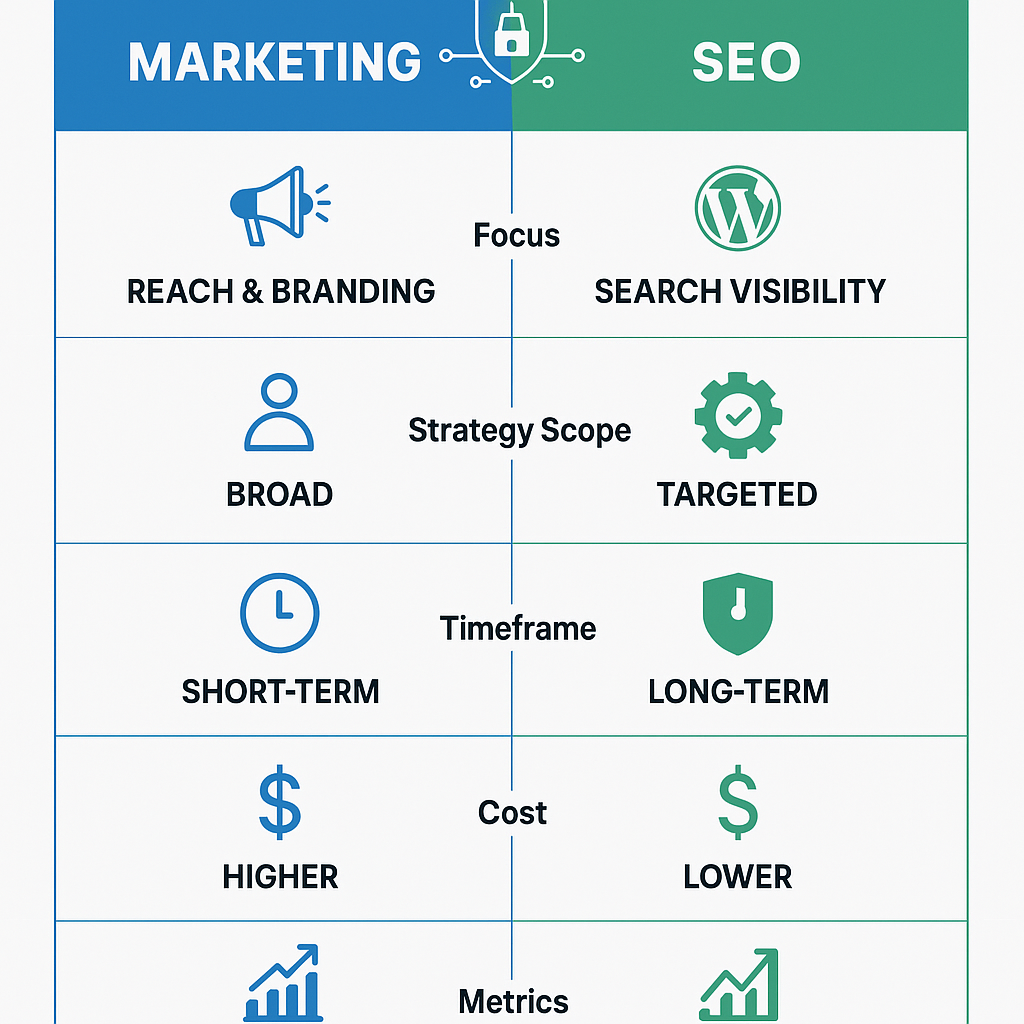
How to Integrate Marketing and SEO for Business Growth
- Align Content with Keyword Strategy: Create marketing content that naturally incorporates SEO keywords to attract organic traffic while engaging your audience.
- Leverage Social Media for SEO: Share optimized content across social platforms to drive traffic and generate backlinks.
- Paid Ads + SEO: Use data from paid campaigns to identify high-performing keywords and enhance organic content.
- Data-Driven Decisions: Track metrics like organic traffic, conversion rates, and engagement to refine your strategy.
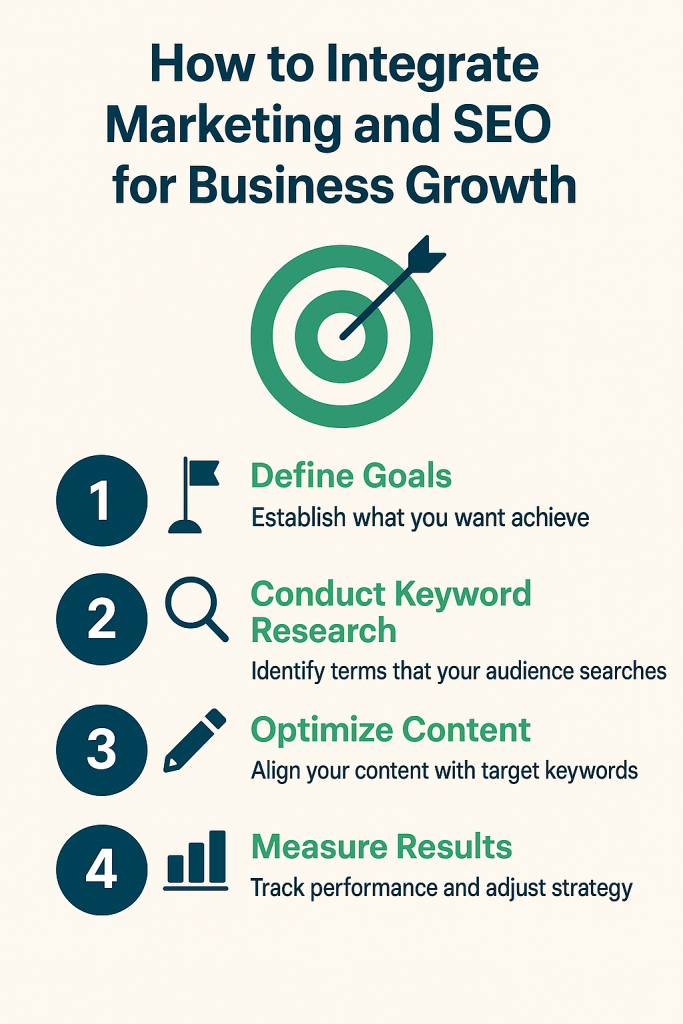
Real-World Example: A Balanced Approach
Imagine a small e-commerce brand selling eco-friendly products. The marketing team creates informative blog posts about sustainable living, optimized for keywords like “eco-friendly lifestyle.” They also run targeted social media ads to boost product visibility. By integrating SEO-friendly content with strategic marketing, they increase both organic traffic and brand awareness.
Final Thoughts
Marketing and SEO are two sides of the same coin. When executed together, they amplify each other’s strengths, driving both visibility and engagement. Whether you’re a startup or an established brand, a well-rounded strategy that blends marketing with SEO practices is essential for sustainable growth.
Ready to transform your business with a strategic blend of marketing and SEO? Let’s start today!
